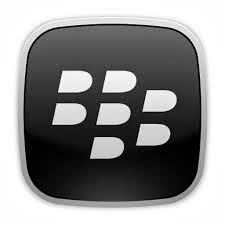DNSmasq provides two services, either of which can be used independently.
- DNS service
- DHCP service (including features relating to network boot)
A
local DNS cache can speed up internet browsing because the user's
browser will not need to access a domain name server when it looks up a
domain name the computer has visited before.
DHCP
allows the user's computer to allocate network addresses to other
computers on the wired or wireless network. A computer needs a unique
network address in order to do access the internet.
DNSmasq
is not designed for so-called "Internet Connection Sharing," however,
it does provide a lot of the services needed in the background. With
DNSmasq set up, only two additional commands can set up internet
connection sharing (ref?).
Note
that the package "dnsmasq" interferes with Network Manager which can
use "dnsmasq-base" to provide DHCP services when sharing an internet
connection. Therefore, if you use network manager (fine in simple
set-ups only), then install dnsmasq-base, but not dnsmasq. If you have a
more complicated set-up, uninstall network manager, use dnsmasq, or
similar software (bind9, dhcpd, etc), and configure things by hand.
Setup for dnsmasq
Like much of the Ubuntu packages, dnsmasq is in universe. Make sure its enabled, then run these commands
$ sudo apt-get install dnsmasq
dnsmasq can be configured by editing the file
$ /etc/dnsmasq.conf
Local DNS Cache
A DNS server
resolves human readable domain names into IP addresses. For example,
when one requests ubuntu.com, the DNS server finds the IP address for
ubuntu.com . One can run a DNS cache on a computer via the steps below.
This will shorten the time required to look up domain names when
browsing. The difference in time is on the order of hundreds of
milliseconds.
After dnsmasq has been installed, use the text editor of choice, such as gedit, nano or vim to edit:
/etc/dnsmasq.conf
Note: in order to save modifications, the editor must be run with administrator permissions, e.g. sudo gedit /etc/dnsmasq.conf . Change the line that looks like (should be around line 90):
#listen-address=
to,
listen-address=127.0.0.1
Now, edit the file
/etc/dhcp3/dhclient.conf
Make sure that around line 20 looks like the following:
#supersede domain-name "fugue.com home.vix.com"; prepend domain-name-servers 127.0.0.1; request subnet-mask, broadcast-address, time-offset, routers, domain-name, domain-name-servers, host-name, netbios-name-servers, netbios-scope;
The prepend domain-name-servers 127.0.0.1; is the important part of the configuration. Adding the prepend option ensures that 127.0.0.1 will appear on the top of the list of DNS servers. 127.0.0.1
refers to the user's own computer. Whenever the user's computer needs
to resolve a domain name, it will forward that request to dnsmasq (which
is running at 127.0.0.1).
Now, edit the file:
/etc/resolv.conf
The file should look something like this,
search yourisp.com nameserver 192.168.0.1 nameserver 205.171.3.25 nameserver 205.171.3.26
Don't
worry if the above listed nameserver numbers are not the same as what
appear in the text editor. But be sure to add the user's computer as a
nameserver at the top of the list:
search yourisp.com nameserver 127.0.0.1 nameserver 192.168.0.1 nameserver 205.171.3.25 nameserver 205.171.3.26
All
that is left is to restart dnsmasq so that the changes we made to the
configuration file come into effect. We do that via the command:
$ sudo /etc/init.d/dnsmasq restart
Now there is a DNS cache set up on the user's computer. To see the difference in speed, we can make use of the dig command twice on our test website:
$ dig ubuntu.com
The first time this happens, the output will look like:
;; Query time: 117 msec
The second time will look like:
;; Query time: 0 msec
Special Cases
- If you are on a large LAN (e.g. business or university) it might not be desirable to provide name service or DHCP for a thousand colleagues, so add the line:
except-interface=eth0 if eth0 is the user's internet/LAN connected interface.
- Add DHCP server:
dhcp-range=192.168.0.20,192.168.0.254,255.255.255.0 This range must not clash with your LAN IP address.
Save and exit the file, restart the daemon:
sudo invoke-rc.d dnsmasq restart
DNSmasq is now listening on some interfaces for DNS lookups and/or DHCP requests. One can verify this by running:
ss -ltp # -l = listen, -t = tcp, -p = show program name
The user can add the line: nameserver 127.0.0.1 to the top of your /etc/resolv.conf file to use the local DNS cache first.
Alternatively, the package resolvconf sorts all this out automatically.
UFW
Unlike the ISC DHCP server which "... in some configurations bypasses the kernel firewall rules entirely" - http://thekelleys.org.uk/dnsmasq/docs/FAQ
- for dnsmasq to work, iptables mustn't block the DHCP port
$ sudo ufw allow bootps^ This command will cause UFW to open the DHCP port, called bootps in /etc/services



 :52595EA2
:52595EA2





